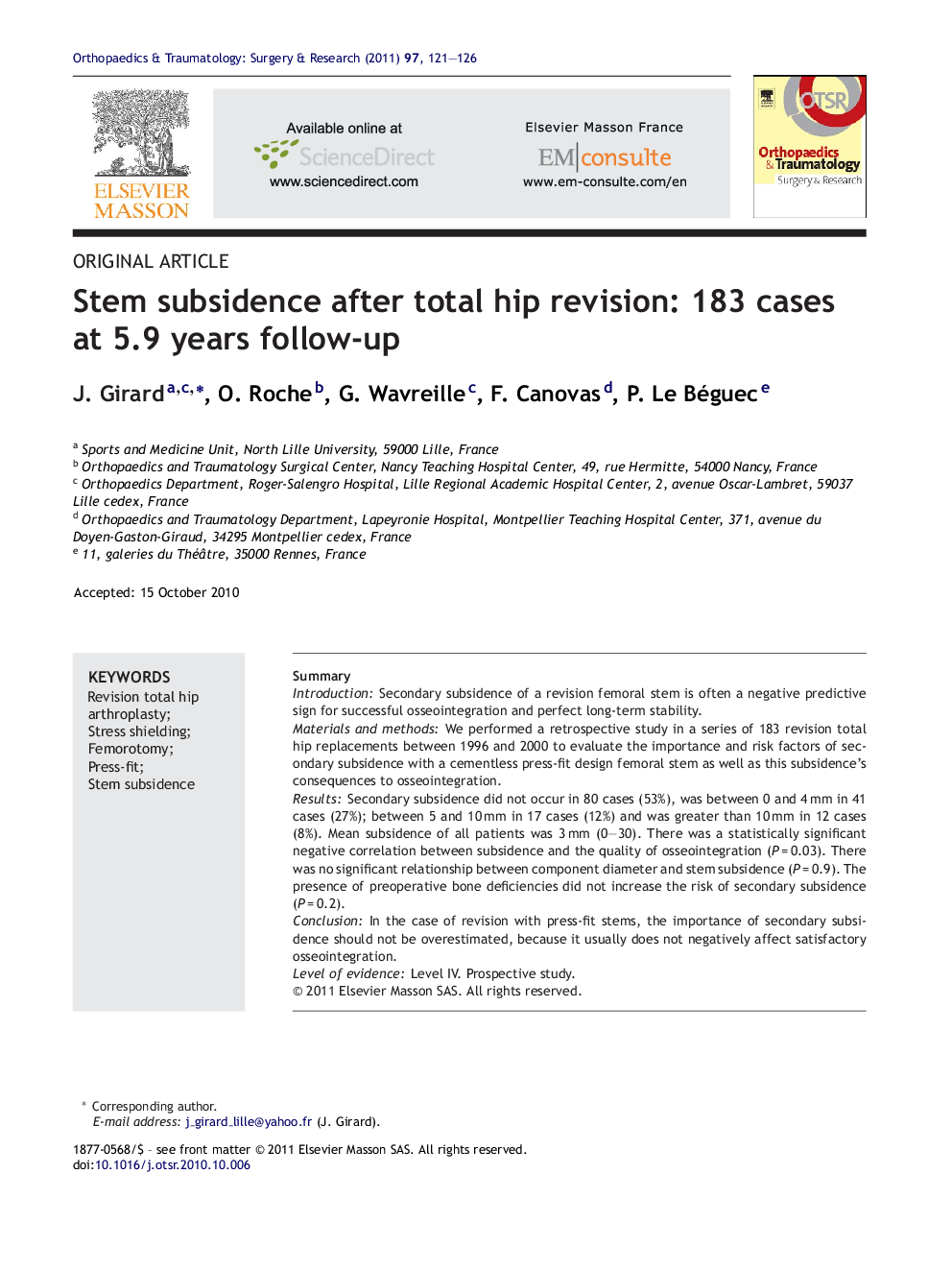| کد مقاله | کد نشریه | سال انتشار | مقاله انگلیسی | نسخه تمام متن |
|---|---|---|---|---|
| 4082074 | 1267622 | 2011 | 6 صفحه PDF | دانلود رایگان |

SummaryIntroductionSecondary subsidence of a revision femoral stem is often a negative predictive sign for successful osseointegration and perfect long-term stability.Materials and methodsWe performed a retrospective study in a series of 183 revision total hip replacements between 1996 and 2000 to evaluate the importance and risk factors of secondary subsidence with a cementless press-fit design femoral stem as well as this subsidence's consequences to osseointegration.ResultsSecondary subsidence did not occur in 80 cases (53%), was between 0 and 4 mm in 41 cases (27%); between 5 and 10 mm in 17 cases (12%) and was greater than 10 mm in 12 cases (8%). Mean subsidence of all patients was 3 mm (0–30). There was a statistically significant negative correlation between subsidence and the quality of osseointegration (P = 0.03). There was no significant relationship between component diameter and stem subsidence (P = 0.9). The presence of preoperative bone deficiencies did not increase the risk of secondary subsidence (P = 0.2).ConclusionIn the case of revision with press-fit stems, the importance of secondary subsidence should not be overestimated, because it usually does not negatively affect satisfactory osseointegration.Level of evidenceLevel IV. Prospective study.
Journal: Orthopaedics & Traumatology: Surgery & Research - Volume 97, Issue 2, April 2011, Pages 121–126